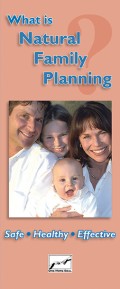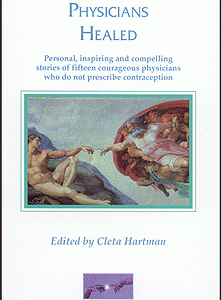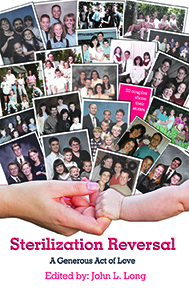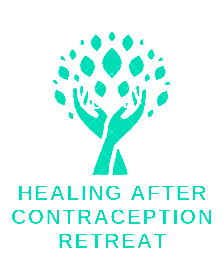Natural Family Planning (NFP) is an umbrella term for certain methods used to achieve and postpone pregnancies. NFP can also be used as a tool to evaluate women’s gynecological/reproductive health. These methods are based on the observation of naturally occurring signs of the fertile phase of a woman’s fertility cycle. Couples using NFP to achieve pregnancy engage in intercourse during the woman’s fertile phase. Couples wishing to postpone pregnancy simply abstain from genital contact during the time of fertility. No drugs, devices or surgical procedures are used in the practice of NFP.
NFP reflects the dignity of the human person within the context of marriage and family life, promotes openness to life, and recognizes the value of every child. By respecting the love-giving and life-giving nature of marriage, NFP enriches the bond between husband and wife.
Is NFP the Rhythm Method?
NFP is not the “Rhythm Method.”
The Rhythm or Calendar Method was in use more than 80 years ago. It was based on the assumption that ovulation occurred about the same time in every cycle. This method often proved unreliable because of the unique nature of each woman’s fertility cycles. Some women have very irregular cycles and almost all women have a cycle of unusual length once in a while.
Modern NFP treats each cycle as unique and is based on over 60 years of scientific research on human fertility. These methods are based on the day-to-day observations of naturally occurring signs and symptoms of the fertile and infertile phases of the current cycle. NFP methods take advantage of the changes associated with ovulation, recognizing that every cycle is unique.
Who can use NFP?
Any married couple can use NFP! A woman need not have “regular cycles.” NFP education helps couples to fully understand their combined fertility, thereby helping them either to achieve or postpone pregnancy. The keys to successful use of NFP are accurate observation, cooperation, shared commitment, and communication between husband and wife.
Is NFP morally acceptable?
All major religions including the Catholic Church accept the use of NFP to avoid pregnancy when couples have a sufficiently serious reason for spacing babies or limiting family size.
Also, the Catholic Church, some Orthodox churches, some parts of Judaism and an increasing number of Protestants are opposed to sterilization and the use of contraceptive or abortifacient drugs and devices. It should be noted that intrauterine devices (IUD), birth control pills, hormonal implants, patches, morning after pills, and injections can cause abortions as they change the uterine lining reducing the likelihood that the embryo can implant.
NFP is unique among the methods of family planning because it enables its users to work with the body rather than against it. Fertility is viewed as a blessing, a reality of life that is accepted, instead of a problem to be solved or a disease to be treated.
NFP is also an excellent tool for helping diagnose problems of couples suffering infertility. Treatment of infertility using NFP to monitor the fertility cycle has achieved pregnancy success rates of 70-80%. This holistic approach honors the integrity of the marriage act, respects the dignity of parents and children, and is consistent with Catholic Church teaching.
What are the signs of fertility?
A woman’s body provides basic signs for identifying the fertile and infertile phases of her cycle. Recognizing the pattern of these physical signs forms the basis for all methods of NFP.
The primary sign of fertility is the cervical mucus. She learns to observe this normal, healthy, cervical mucus which indicates the days when intercourse is most likely to result in a pregnancy. This external observation may be by sensation, observation, or touch (or in combination).
A second sign is her basal body temperature. Due to hormonal activity, a woman’s resting temperature changes during her cycle. Lower temperatures indicate that ovulation has not yet occurred. Sustained higher temperatures indicate a rise in progesterone which signals that an ovulatory event has taken place.
Other signs of fertility are a change in the position and texture of the cervix, breast tenderness and pain around the ovary. An ovulation predictor kit can also be used to detect reproductive hormones in the urine of a woman.
How does NFP work?
NFP instruction helps a couple identify the most fertile and least fertile days of the woman’s cycle. Understanding that intercourse on fertile days can result in pregnancy, couples using the natural methods must clearly determine their family planning intention—do they wish to achieve or postpone pregnancy?
If a couple wishes to achieve a pregnancy, they have intercourse during the fertile time of the cycle. If a couple wishes to postpone or avoid a pregnancy, they abstain from intercourse and any genital contact during the fertile time.
What are the benefits of using NFP?
With NFP both spouses are taught to understand the nature of fertility and work with it, whether it’s to plan a pregnancy, space children, avoid pregnancy for serious reasons, or to monitor a woman’s health. A couple who use NFP soon learn that they have a shared responsibility for family planning. The husband is encouraged to “tune into” his wife’s cycles, and both spouses are encouraged to speak openly and frankly about their sexual desires and their thoughts concerning family size.
How effective are the methods of natural family planning?
When couples are taught by a competent teacher and follow the rules of the method carefully, NFP is highly successful in achieving their intended family plan. Numerous studies, including one by the U.S. government and another by the World Health Organization, have shown that the most common NFP methods are 97-99% effective for avoiding pregnancy.
That’s as effective as the birth control pill and far more effective than barrier methods. For couples who have made a clear decision to postpone pregnancy, and who understand and follow the rules, no more than 0.4-5% of these couples will experience pregnancy in a one year period.1 Couples who use NFP to achieve pregnancy have a 90% success rate within a year.2
1. Hatcher, R. (Ed.). (2011). Contraceptive technology (Twentieth Revised Edition ed.). New York: Ardent Media.
2. Mu, Q., & Fehring, R. J. (2014). Efficacy of achieving pregnancy with fertility-focused intercourse. MCN.the American Journal of Maternal Child Nursing, 39(1), 35-40.
As a family planning method, NFP:
- calls for shared husband and wife responsibility
- requires the couple to communicate
- is based on scientific research
- treats each fertility cycle as unique
- teaches a couple to observe their signs of fertility on a daily basis
- has no harmful side effects
- is low cost
- builds strong marriages
- is morally acceptable
- protects the environment
Other benefits include:
- marriage enrichment and mutual understanding
- appreciation for the blessings of every child
- greater respect for, and acceptance of, the total person
- assistance in achieving pregnancy
- early identification of sub-fertility
- effectiveness for spacing or limiting pregnancy
- can be used throughout life, including postpartum, breast-feeding, and perimenopause
What health risks are avoided in choosing NFP?
When undergoing medical or surgical treatment, people will always be faced with potential side effects. Most people are willing to take the risks in order to be cured of their illness. Fertility, however, is not a disease. It is a normal and healthy part of human nature. Learning to live with fertility rather than waging war against it appeals to many people. The following problems are avoided by couples practicing NFP.
Potential problems associated with:
Abortion: Infertility, pelvic infection, laceration of cervix and bowel, perforated uterus, severe bleeding, shock, death due to hemorrhage or infection, increased risk of breast cancer (especially if the first pregnancy is terminated), depression, suicide.
Condoms: Least reliable method of family planning (high failure rate for postponing pregnancy), latex allergy, increased risk of pre-eclampsia.
*Depo-Provera: Prolonged infertility or unpredictable return of fertility, irregular menses, osteoporosis, decreased libido, weight gain, depression, acne, back pain, increased risk of HIV/AIDS infection.
Diaphragm: Urinary tract infections, toxic shock syndrome, allergy to latex, vaginal irritation.
*IUD/IUS: (Both) Severe menstrual cramps, heavy periods, pelvic infections, ectopic pregnancy, ovarian cysts, perforated uterus, irregular bleeding, infertility, (IUS) includes all the problems associated with hormonal birth control.
*Nuva Ring: Irregular bleeding, heart attack, stroke, fluid retention, sinus infection, headache, death.
*MORNING AFTER PILL: Nausea, vomiting, headache, breast soreness, fatigue, abdominal pain, ectopic pregnancy and dizziness.
*Implant: Acne; leaking or painful breasts; depression; prolonged, heavy and irregular menses or absence of periods; ovarian cysts; infections where rods are inserted; weight gain and hypertension.
*Hormonal Birth Control (the Pill, Patch, Shot, etc.): Headaches, depression, weight gain, breast tenderness, reduced libido, gall bladder disease; increased blood pressure, increased blood sugar; vitamin and mineral deficiencies; risk of strokes and blood clots including retinal clots; cataracts, heart attacks, ectopic pregnancy, infertility; increased risk of HPV and HIV infections; liver tumors, cancer of the brain, breast and reproductive organs; memory loss, death.
*ELLA/RU486: Bleeding, cramping, nausea, vomiting; may cause an incomplete abortion which requires surgery.
Spermicide: Increases incidence of congenital disorders in children conceived during use, vaginal irritations and infections, allergic reactions in men and women.
Female sterilization: Increased risk of ectopic pregnancy, painful menses, very heavy periods, regrets (40%), surgical risk of infection and injury to other organs, future hysterectomy.
Male sterilization: Increased risk of prostate cancer, autoimmune diseases, regret, dementia, pain.
*May also cause an early abortion.
Where can I learn how to use NFP?
The best way to learn NFP is from a qualified instructor—one who is certified by an NFP teacher training program. For more information about NFP instruction available in your community, contact any of the following organizations:
Billings Ovulation Method Assn (USA)
(651) 699-8139 www.Boma-usa.org
The Couple to Couple League
(800) 745-8252 www.ccli.org
Family of the Americas Foundation
(800) 443-3395 www.familyplanning.net
FertilityCare Centers of America
(402) 390-6600, ext. 117 www.fertilitycare.org
Institute for Natural Family Planning
(414) 288-3854 www.mu.edu/nursing/NFP
Natural Family Planning International
(740) 457-9663 www.nfpandmore.org
Northwest Family Services
(503) 215-6377 www.nwfs.org/couples-a-singles/natural-family-planning.html
United States Conference of Catholic Bishops
(202) 541-3070 www.usccb.org/issues-and-action/marriage-and-family/natural-family-planning/
One More Soul
(800) 307-7685 www.onemoresoul.com
For a directory of NFP-Only physicians and NFP teachers, as well as a great variety of resources on NFP, the blessings of children, and the harms of contraception, please visit One More Soul at www.onemoresoul.com.







